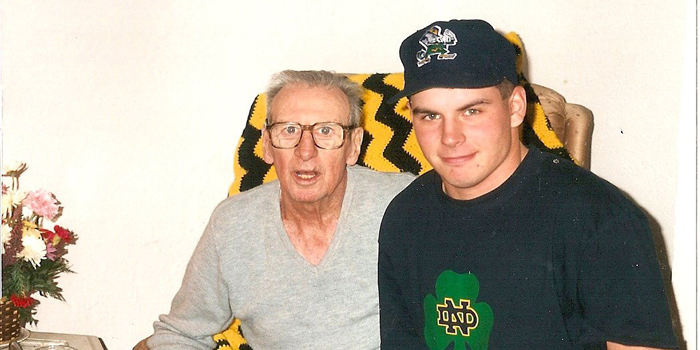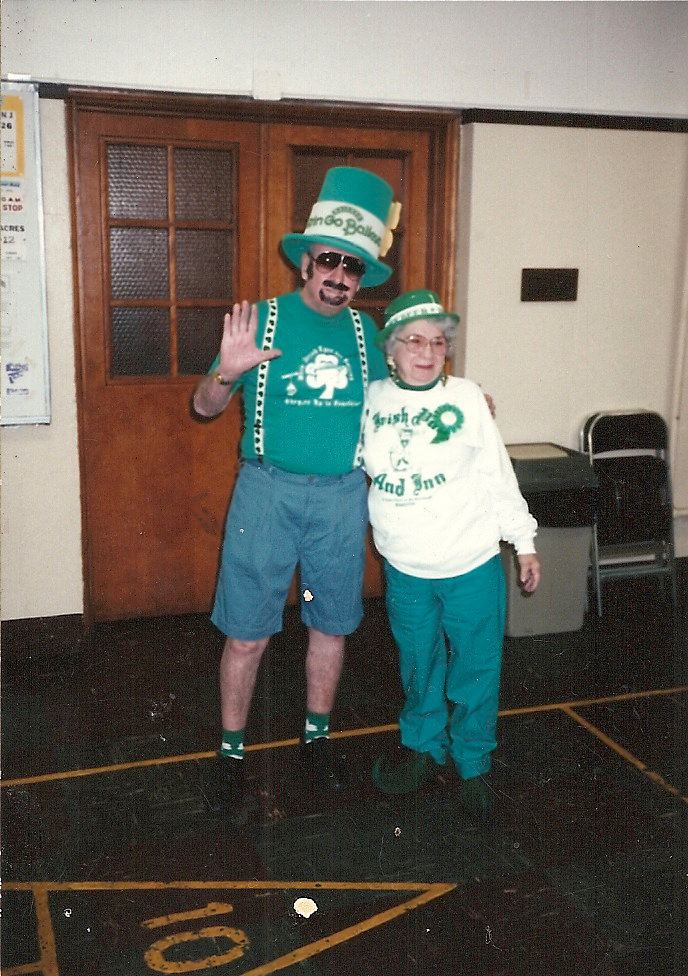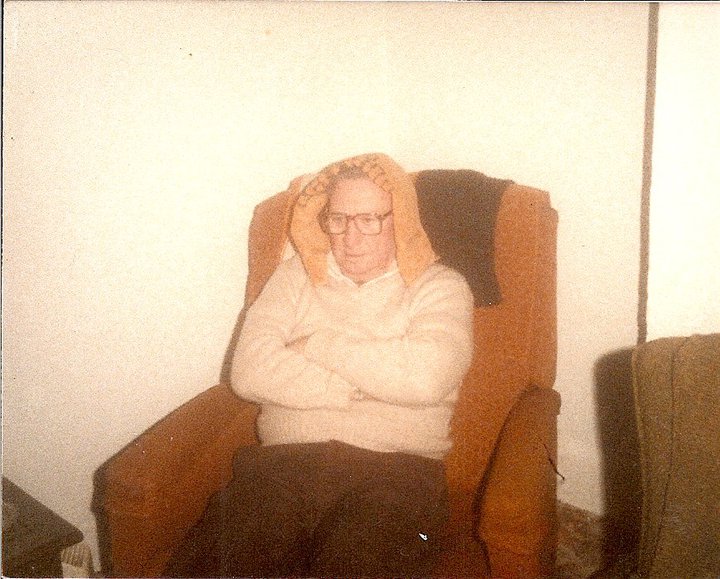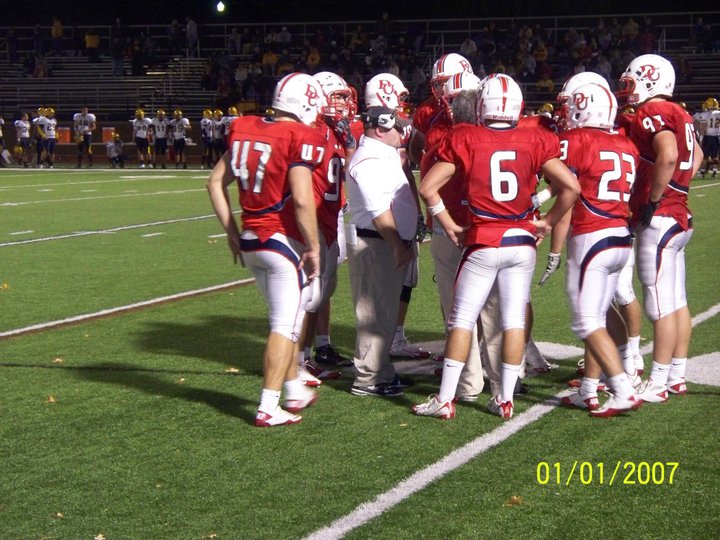
On March 17, 1997, one of the greatest human beings on earth lost his battle with lymphoma. My grandfather, James Henry Rawe Senior, passed away on St. Patrick's Day. Out of all the many lessons he taught me, this one stood out to me.
Adversity doesn't build character; it reveals it
If you ever want to know who your go to guys are as a coach, all you need to do is look at your team when things aren't going well. I am not talking about immediately after a loss. Everyone should be pissed after a loss. I am talking about immediately after a turnover, or putting the go ahead run on base, or missing the front end of a 1and1, or fouling the 3-point shooter. Look at the players after the opposing team makes a big play, big hit, or big shot. How those players react can tell you a lot about who they are as players and as people in general. Those negative plays may not magically transform them into the "go-to" players you are looking for, but it will give you an indication as a coach what players you will be able to consistently count on.
Baseball at Alton Field in Beechview
I grew up in the South Hills of Pittsburgh and played football since I was 8 years old for the Brookline Knights. My grandfather was a baseball legend in Pittsburgh and lived in Beechview most of his life after moving from the North Side. He starting coaching in 1947, mostly 16-20 year olds. Guys from all over the city wanted to play for my grandpap. At the time I thought it was because he was one of the best ever. Whether he was or wasn't, it didn't really matter much. His team won the AAABA championship in 1965. Other that that, his need or want to coach for any other reason but to help young men was the only motivation he needed. He wanted to help them be
- Better baseball players, and
- better young men.
Isn't that why someone coaches? I wish it were.
Alton field was a baseball field and park on the top of a hill near Beechwood elementary. By the time it was named after my grandfather, Jim Rawe Field, it already started to feel the wear and tear of lack of use combined with lack of upkeep. It was really sad to see. Back when I was younger, Alton Field was alive with College kids playing summer baseball, pick-up games on the basketball courts, and little kids on the playground. My mom and aunt used to sell pop for 5cents a piece when they were my age during the games. My grandfather still payed kids to shag foul balls that flew over the right field fence. A dollar a ball was the going rate at the time I was a bat boy for him. For my labor, he would pay for half of my registration for Jack Lambert's Football Camp.
Games started at 1pm, but I remember driving around the city of Pittsburgh to pick up kids from Hazelwood, Crafton, wherever, starting at 8am since he had to line the field himself. If they wanted to play for my Pap, he would go pick them up. I didn't realize until I got older that they all wanted to play for him because they all got a fair shot and would be better when they went back to school.
What do you do when shit goes south?
It's funny how your mind can forget entire games and remember exact details of others. Maybe because I got promoted to doing the books along with my batboy duties that I remember this particular game. I can't remember who exactly we were playing but I do remember the situation.
We were the home team and it was the top of the 9th. We were up by one run with one runner on 2nd or 3rd (I can't remember which). Winning run was at the plate and late into the count, this dude hits a jack over the right center field fence which was considerably shorter than left.
As you could imagine, their whole bench went crazy, as they should, they just took the lead by a run. We still had another half inning to bat since we were the home team, nevertheless, out whole team was deflated. out guys couldn't help but put their heads down and literally stare at the dirt whether they were in the field or in the dugout. Everyone but my pap, apparently.
After the high fives were finished, their next batter approached the plate. Our closer had his head down as he got another ball from the umpire. My pap, who was usually sitting with hsi legs crossed (like old guys do) or standing with both hands in his back pockets (like old guys do). He walked toward the 3rd base line looked at our dejected pitcher and said, "Throw the ball to first." He looked confused, as did most of us, but obliged. When our first baseman caught the ball with his foot on first. The next thing we heard was, "the runner is out."
The kid missed first base while admiring his homerun.
Apparently with two outs no runner can score on a force out even when it was a dead ball. This is sometimes referred to the 4th out. Regardless, game over.
I may not of realized it as the time but my grandpap taught me something that day. When everyone was either enjoying the success or pouting about the failure; he kept his head up and watched. As hard as it was, watching a routine play like your opponent rounding a the bases after a 2-run bomb seems redundant and just unnecessary. As much as "a next pitch mentality" is a needed attribute for a mental game like baseball, dealing with negative plays head-on is something all successful coaches and athletes do.
Take Home Point
Giving up that homerun did not build anyone's character on our team that day. No one's. But, once that ball left the yard (or even when it left the bat), the quality of character was on display all over that field.
Dealing with Adversity
Successful coaches, athletes, and people usually become that way due to how they are able to understand and learn from the negative things that happen. There are a few ways that enable coaches and athletes to rise above the one impending factor that all people have to deal with at one time or another... Adversity.
Tips on Dealing with Adversity
1. Get the whole picture. Understand everything about the situation. Remember, like Brian Cain has said; everything is not good or bad, it always good an bad. Usually, it is never as bad or as good as originally perceived. Put things in your perspective.
Ex: You didn't get the internship at DI University. But when looking at all the factors, you were told you had a great interview but you didn't have enough experience. You have a definite place to start.
2. Ask Why. This is a necessary step in learning and improving. On top of the initial question, asking why needs to happen multiple times and need concrete answers. Keep in mind, that there is going to be adversity that happens that is out of your control and the reasons why will escape you. The simple fact that there is not a
Ex: You missed a squat. Why?
You fell forward. Why?
Your hips rose faster than your hips. Why?
Posterior Chain is week, etc.
Sounds borderline childish, but it is necessary for the next step.
3. Action Plan. I know, this is a corny cliche, but it is the final step in a process of ultimately getting better. Things went wrong and taking steps to address this issue will help deal with flushing the negativity out of your system.
Ex: Tested horribly in the vertical jump test. After putting everything into perspective (Step 1: 8 months post ACL surgery) and identifying why it went wrong (Step 2: lack of posterior chain strength, neuromuscular control, and hip mobility); a plan of action would be to increase strength, add more jump specific training and soft-tissue work on the hip flexors.
Not saying this is the best plan of action for this example, but a concrete plan nonetheless.
Regardless of endeavor, dealing with adversity is something we will all deal with constantly. Who you deal with it could define you.
Dedicated to James Henry Rawe Sr.
SATURDAY
Snatch + Hang Snatch Combo
60kg for 3 doubles
Log Press
- 200x4
- 200x3
- 200x2
Sprints
- 10yd (20yd) bulid-ups x2
- 10yd x2
- 20yd x1
- 30yd x2
MONDAY
SS Yoke Bar Pause Sqaut
- 310x3
- 310x2
- 310x1
- 260x4
supersetted with...
Box Jumps w/ no CM
- 3,2,1,4
Posterior Chain Circuit
- Glute-Ham Riase w/ 2 pauses at each halfway point of rep
- 1x5
- Glute-Ham Raise Sit-Up
- 20lbs 1x15
- Standing Crunch on Glute-Ham Bench
- Light Band 1x20
- 45 Degree Back Raise Rear Delt Raise Combo
- 10lb x 10











